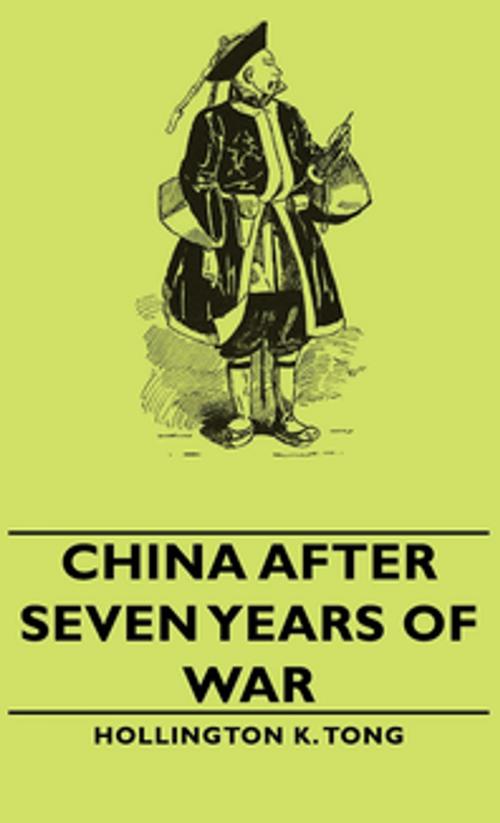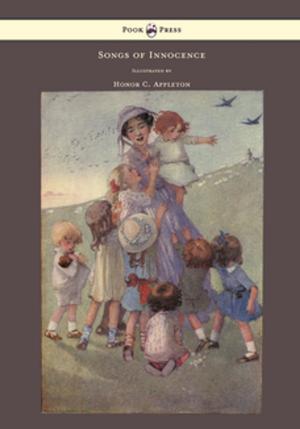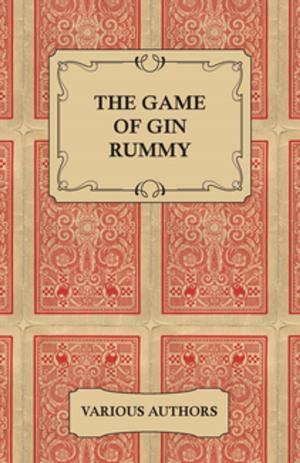| Author: | Hollington K. Tong | ISBN: | 9781447496991 |
| Publisher: | Read Books Ltd. | Publication: | November 7, 2012 |
| Imprint: | Tong Press | Language: | English |
| Author: | Hollington K. Tong |
| ISBN: | 9781447496991 |
| Publisher: | Read Books Ltd. |
| Publication: | November 7, 2012 |
| Imprint: | Tong Press |
| Language: | English |
This classic book was written by Hollington K. Tong whilst China was still in the clutches of war, and contains an affective account of what life was like within the country at that time. Extract : 'The Chinese believe that all things under heaven work together for good. An evil comes but will not long stay. No matter how a story begins, it has a happy ending. During seven years of war, the Chinese have suffered misery. There have been broken homes and broken hearts. There have been separations and dislocations. There have been worries about food and about clothes and about innumerable things. The war years are not the first in which the Chinese have suffered. In their best times, they were afflicted with poverty. The majority of them are poor by birth. On top of poverty there have been floods, droughts, civil wars, each bringing untold suffering. All these calamities soon passed. The Chinese rose after each, not only unbeaten but stronger through the discipline of hardships which, down the centuries, they have learned to endure and overcome. The present war has brought the worst of the worst to the Chinese people. Seven years is the longest that any evil has remained with them, but it has not been long enough to wear out people who, for thousands of years, have suffered hardships and privations, and have survived. This long war will end as all other evils have ended, and there will come a better day. Until it comes, the Chinese have the spirit to smile in the face of hardships and to carry on a spirit which has sustained them through the calamities of the seven years of this war as it sustained them through calamities of the past. It is the spirit of her teeming millions of farmers, from whom most of the five million men of China's army were drawn, and from whose fields comes the food for the army. It is the spirit of her laborers, her mechanics and engineers who have built China's wartime railways, highways, water ways, and other arteries of communication, and who work in China's arsenals to keep the guns supplied with ammunition. It is the spirit of China's women as well as her men. The people of China, despite the stress and strain of war, have carried on. They continue to make love, to get married, to give birth to babies and to support growing families on meager incomes. Seven years is a long time, during which many things can happen and many things have happened to Teng Chan.'
This classic book was written by Hollington K. Tong whilst China was still in the clutches of war, and contains an affective account of what life was like within the country at that time. Extract : 'The Chinese believe that all things under heaven work together for good. An evil comes but will not long stay. No matter how a story begins, it has a happy ending. During seven years of war, the Chinese have suffered misery. There have been broken homes and broken hearts. There have been separations and dislocations. There have been worries about food and about clothes and about innumerable things. The war years are not the first in which the Chinese have suffered. In their best times, they were afflicted with poverty. The majority of them are poor by birth. On top of poverty there have been floods, droughts, civil wars, each bringing untold suffering. All these calamities soon passed. The Chinese rose after each, not only unbeaten but stronger through the discipline of hardships which, down the centuries, they have learned to endure and overcome. The present war has brought the worst of the worst to the Chinese people. Seven years is the longest that any evil has remained with them, but it has not been long enough to wear out people who, for thousands of years, have suffered hardships and privations, and have survived. This long war will end as all other evils have ended, and there will come a better day. Until it comes, the Chinese have the spirit to smile in the face of hardships and to carry on a spirit which has sustained them through the calamities of the seven years of this war as it sustained them through calamities of the past. It is the spirit of her teeming millions of farmers, from whom most of the five million men of China's army were drawn, and from whose fields comes the food for the army. It is the spirit of her laborers, her mechanics and engineers who have built China's wartime railways, highways, water ways, and other arteries of communication, and who work in China's arsenals to keep the guns supplied with ammunition. It is the spirit of China's women as well as her men. The people of China, despite the stress and strain of war, have carried on. They continue to make love, to get married, to give birth to babies and to support growing families on meager incomes. Seven years is a long time, during which many things can happen and many things have happened to Teng Chan.'















